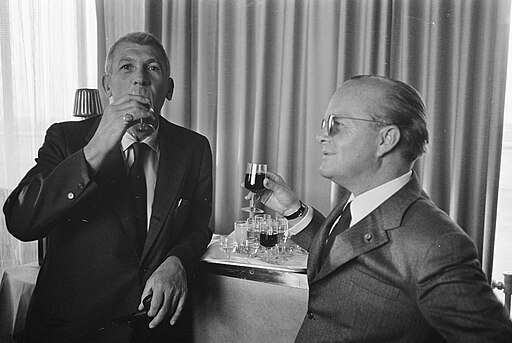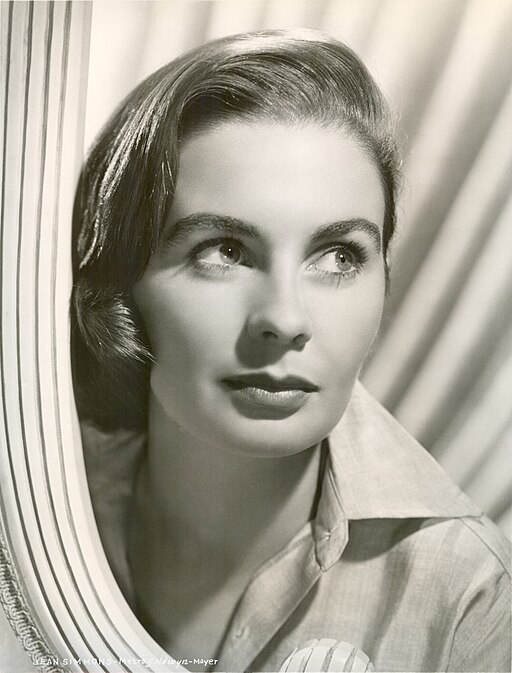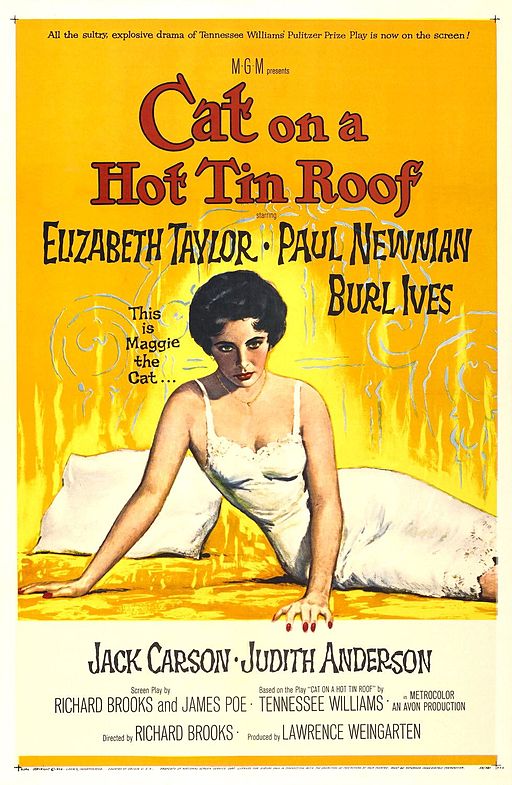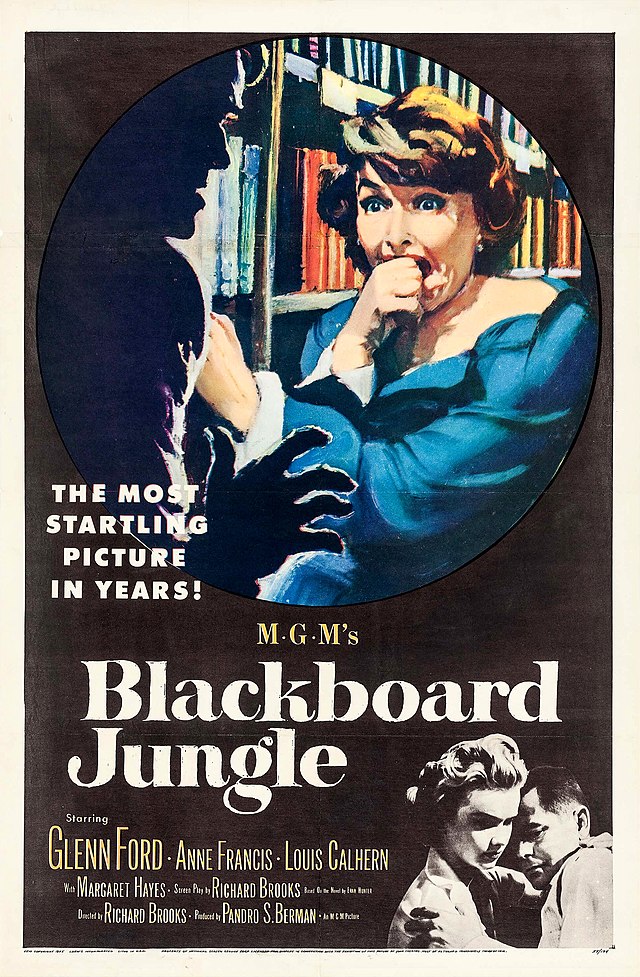Richard Brooks
back| Full Name | Reuben Sax |
| Born | May 18, 1912 |
| Birthplace | Philadelphia, Pennsylvania, USA |
| Died | March 11, 1992 |
| Buried | Hillside Memorial Park, Culver City, California, USA |
| Married to | Jean Simmons (1960–1977), Harriette Levin (1941–1960) |
| Children | Kate Brooks |
| Notable films | Cat on a Hot Tin Roof (1958) - Elmer Gantry (1960) - In Cold Blood (1967) - Looking for Mr. Goodbar (1977) |
Richard Brooks
Director with a conscience
Richard Brooks was an influential American film director, screenwriter, and novelist. Born in Philadelphia, he began his career as a radio sports commentator and later as a screenwriter. Brooks made his directorial debut in 1950 with "Crisis." He gained recognition for his gritty, realistic style and unflinching approach to social issues.
His adaptation of Tennessee Williams' "Cat on a Hot Tin Roof" in 1958 brought him critical acclaim. Brooks' ability to translate complex narratives to the screen was further evidenced in "Elmer Gantry" (1960), which won him an Academy Award for Best Adapted Screenplay.
Brooks continued to push boundaries with films like "In Cold Blood" (1967), a cinematic adaptation of Truman Capote's novel, and "Looking for Mr. Goodbar" (1977). His work often explored moral ambiguity, social tensions, and human frailty.
Apart from his professional achievements, Brooks' personal life included a high-profile marriage to actress Jean Simmons. His career spanned over four decades, during which he established himself as a filmmaker unafraid to confront challenging themes. He passed away in 1992, leaving behind a legacy of influential and thought-provoking films.
Related
Richard Brooks
Biography and analysis of his work
Richard Brooks' early years laid the foundation for his future career as a distinguished filmmaker. Born as Reuben Sax on May 18, 1912, in Philadelphia, Pennsylvania, he grew up in a modest environment that influenced his later works' gritty realism.
Brooks' interest in storytelling and the arts manifested early. He was an avid reader, which fostered a deep appreciation for literature — a passion that would later be reflected in his numerous adaptations of literary works to film. This background in literature was key in shaping his narrative style and thematic focus.
After completing his education, Brooks initially pursued a career in journalism. He worked as a sports reporter and a radio commentator, which honed his skills in narrative construction and understanding of dramatic structure — skills that would prove invaluable in screenwriting and directing.
Brooks' transition from journalism to film began with scriptwriting. He moved to Hollywood in the late 1930s, where he started writing screenplays. His early work in Hollywood included writing scripts for radio shows, which was a common stepping stone for many writers and directors of the era. This period was crucial for Brooks as he learned the mechanics of storytelling and developed his unique voice.
His move into film directing came in the late 1940s and early 1950s. His directorial debut, "Crisis" (1950), marked the beginning of a career that would span several decades, during which he would be known for his compelling narratives and socially conscious filmmaking.
Throughout his career, Brooks' early influences — his love for literature, his experience in journalism, and his early work in radio and screenwriting — were evident. They helped form a director with a keen eye for storytelling, a deep understanding of human nature, and a commitment to exploring complex, often controversial themes.
Marriage with Jean Simmons
Richard Brooks' private life, particularly his marriage to English actress Jean Simmons, was a significant chapter in his life. They were married in 1960, and their union lasted until 1977.
Jean Simmons, known for her beauty and talent, had already established herself as a successful actress by the time she married Brooks. She had notable roles in films such as "Hamlet" (1948), for which she received an Academy Award nomination, and "Guys and Dolls" (1955). Her marriage to Brooks came after her highly publicized relationship with actor Stewart Granger ended in divorce.
The couple's relationship was both a personal and professional partnership. Simmons starred in three films directed by Brooks: "Elmer Gantry" (1960), "The Happy Ending" (1969), and "The Grass Is Always Greener Over the Septic Tank" (1978). "The Happy Ending," in particular, was a significant project for the couple, as it was written and directed by Brooks and reflected some of Simmons' own experiences, dealing with themes of disillusionment and the search for happiness.
However, their marriage was not without its challenges. The pressures of two high-profile careers and the demands of Hollywood life took their toll. They divorced in 1977, but both remained active in the film industry.
Despite the end of their marriage, both Brooks and Simmons continued to have respect for each other's work. Their partnership was a blend of personal and creative collaboration that left a mark on Hollywood during their time together. After their divorce, Brooks kept a relatively low profile regarding his personal life, focusing on his work in the film industry.
Richard Brooks passed away on March 11, 1992, at the age of 79. He died of congestive heart failure in Beverly Hills, California.
Analysis of Richard Brooks’ direction style:
Richard Brooks was known for his gritty, unflinching approach to storytelling, often tackling complex and challenging themes. His direction style was marked by a few key characteristics:
Adaptations of Literary Works
Brooks had a knack for adapting complex novels and plays for the big screen. He successfully transformed works by authors like Fyodor Dostoevsky ("The Brothers Karamazov"), Tennessee Williams ("Cat on a Hot Tin Roof" and "Sweet Bird of Youth"), and Truman Capote ("In Cold Blood") into films. His adaptations were respectful of the source material yet innovative in their cinematic interpretation.
Realism and Social Commentary
Many of Brooks' films were known for their realistic portrayal of societal issues. Whether addressing juvenile delinquency in "Blackboard Jungle," the dark side of the American dream in "Elmer Gantry," or the chilling reality of crime in "In Cold Blood," Brooks never shied away from depicting the harsher aspects of life. His films often provoked thought and discussion about the social issues they portrayed.
Character Development
Brooks was adept at developing complex characters, allowing actors the space to explore and bring depth to their roles. His characters were multi-dimensional and often flawed, which made them relatable and human. He had a talent for drawing out powerful performances from his actors, evidenced by numerous Oscar nominations and wins for those he directed.
Visual Style
While not overly stylized, Brooks' visual approach served the narrative effectively. He had a straightforward, unembellished style of filmmaking, relying on strong performances and a compelling story rather than visual effects or gimmickry.
Dialogue-Driven
His movies were often dialogue-heavy, but the dialogue was purposeful and sharp. Brooks had a background in radio and as a novelist and screenwriter, which contributed to his skill in crafting engaging, meaningful dialogue.
Diverse Genre Exploration
Brooks explored a variety of genres throughout his career, from film noir and crime dramas to westerns and romantic dramas. This versatility allowed him to reach a wide audience and explore different aspects of the human condition.
Moral Complexity
His films frequently explored moral ambiguity and the complexities of right and wrong. Brooks was not afraid to leave audiences with unresolved questions, encouraging them to contemplate the film's themes long after the credits rolled.
In summary, Richard Brooks was a director who combined literary sensibility with cinematic skill. His films are remembered for their thought-provoking content, strong character development, and his ability to translate complex stories from page to screen with integrity and insight.
Notable movies directed by Richard Brooks:
1950s:
- "Crisis" (1950): A doctor and his wife are caught in a civil war in a fictional South American country.
- "The Light Touch" (1951): A drama about an art thief trying to double-cross his partners.
- "Deadline – U.S.A." (1952): The editor of a failing newspaper fights to expose gangsters.
- "Battle Circus" (1953): A love story set in a Mobile Army Surgical Hospital during the Korean War.
- "Take the High Ground!" (1953): A drama about army sergeants training recruits.
- "Blackboard Jungle" (1955): A groundbreaking film about inner-city schools, highlighting juvenile delinquency.
- "The Last Time I Saw Paris" (1954): A romantic drama based on a story by F. Scott Fitzgerald.
- "Cat on a Hot Tin Roof" (1958): An adaptation of Tennessee Williams' play about a troubled Southern family.
- "The Brothers Karamazov" (1958): An adaptation of Dostoevsky's novel about the lives of the Karamazov family.
1960s:
- "Elmer Gantry" (1960): A drama about a charismatic but morally bankrupt preacher, which won Brooks an Oscar.
- "Sweet Bird of Youth" (1962): Another Tennessee Williams adaptation, focusing on a gigolo and a fading movie star.
- "Lord Jim" (1965): An adaptation of Joseph Conrad's novel about a disgraced British seaman.
- "In Cold Blood" (1967): A film adaptation of Truman Capote's true-crime novel.
1970s:
- "The Happy Ending" (1969): A drama about a middle-aged woman's struggles with unhappiness.
- "$" (Dollars) (1971): A caper film about a bank heist in Hamburg.
- "Bite the Bullet" (1975): A Western about a 700-mile horse race and the competitors involved.
- "Looking for Mr. Goodbar" (1977): A drama about a young woman's sexual explorations and tragic end.
1980s:
- "Wrong Is Right" (1982): A satirical look at American politics and Middle Eastern oil.
- "Fever Pitch" (1985): A drama about a sports writer and his gambling addiction.
Remarkable quotes from Richard Brooks:
On filmmaking and storytelling:
"You must believe in what you are doing, that what you are doing is important, and that it is going to affect people's lives."
On adapting novels to film:
"A book is a book and a movie is a movie. I believe in a very wide demarcation between the two."
On truth in cinema:
"Movies are a medium of expression like a symphony orchestra... or a painter's brush and canvas. It is my chosen medium of expressing what I feel about man, the world, and humanity."
Reflecting on society:
"I have been accused of being pessimistic, but the truth is I am just a realist. And the reality is that there are more reasons to be pessimistic than optimistic in the world today."
On the role of a director:
"A director should not just be the storyteller, but also the critic of that story, constantly questioning and challenging the narrative."
On characters in films:
"Characters in movies are there to portray the variances and complexities of human nature."
On the essence of drama:
"Drama is conflict. Without conflict, you have no character; without character, you have no action. Without action, you have nothing."
Awards and Nominations:
Academy Awards (Oscars):
- Won Best Writing, Screenplay Based on Material from Another Medium for "Elmer Gantry" (1960).
- Nominated for Best Director for "Cat on a Hot Tin Roof" (1958), "Elmer Gantry" (1960), and "In Cold Blood" (1967).
- Nominated for Best Writing, Screenplay Based on Material from Another Medium for "Cat on a Hot Tin Roof" (1958) and "In Cold Blood" (1967).
- Nominated for Best Picture and Best Writing, Screenplay Written Directly for the Screen for "The Professionals" (1966).
Cannes Film Festival:
- "The Professionals" (1966) was nominated for the Palme d'Or.
Directors Guild of America:
- Nominated for Outstanding Directorial Achievement in Motion Pictures for "Elmer Gantry" (1960).
Golden Globe Awards:
- "Cat on a Hot Tin Roof" (1958) won Best Motion Picture – Drama.
- Nominated for Best Director for "Elmer Gantry" (1960) and "In Cold Blood" (1967).
- "Elmer Gantry" (1960) was also nominated for Best Motion Picture – Drama.
Writers Guild of America:
- Won Best Written American Drama for "Elmer Gantry" (1960) and Best Written American Drama for "In Cold Blood" (1967).
- Received several other nominations for his screenwriting work.
All movies directed by Richard Brooks:
1950s:
- 1950: "Crisis"
- 1951: "The Light Touch"
- 1952: "Deadline – U.S.A."
- 1953: "Battle Circus"
- 1953: "Take the High Ground!"
- 1954: "The Last Time I Saw Paris"
- 1955: "Blackboard Jungle"
- 1956: "The Catered Affair"
- 1956: "The Last Hunt"
- 1957: "Something of Value"
- 1958: "The Brothers Karamazov"
- 1958: "Cat on a Hot Tin Roof"
1960s:
- 1960: "Elmer Gantry"
- 1962: "Sweet Bird of Youth"
- 1965: "Lord Jim"
- 1966: "The Professionals"
- 1967: "In Cold Blood"
1970s:
- 1969: "The Happy Ending"
- 1971: "$" (also known as "Dollars")
- 1975: "Bite the Bullet"
- 1977: "Looking for Mr. Goodbar"
1980s:
- 1982: "Wrong Is Right"
- 1985: "Fever Pitch"





